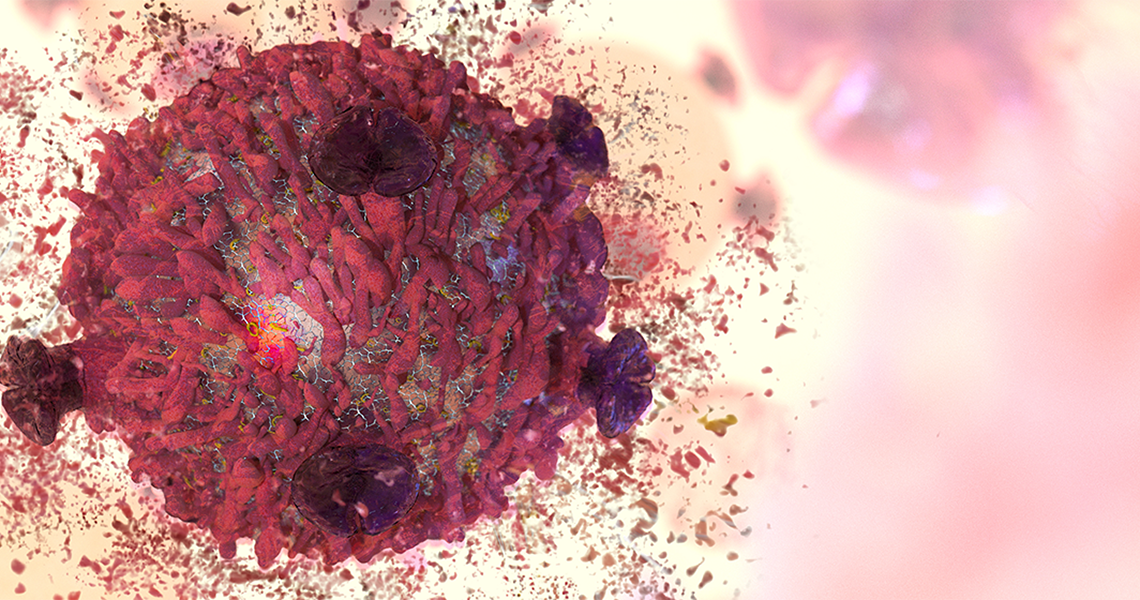WASHINGTON (Jan. 28, 2018) - A team from the George Washington University (GW) Cancer Center has engineered a nanoimmunotherapy that combines the advantages of nanotechnology and immunotherapy to treat cancer. The goal of this nanoimmunotherapy combination is to increase the potency of immune checkpoint inhibitors, a class of immunotherapy that elicits dramatic benefits in only a modest subset of cancer patients, to a significantly larger proportion of patients
Rohan Fernandes, PhD, assistant professor of medicine at the GW School of Medicine and Health Sciences, received more than $1.6 million from the National Institutes of Health for the study. The grant is a R37 award, which is a MERIT - Method to Extend Research in Time - Award for early stage investigators to give them the flexibility and opportunity for creativity and innovation, as well as, additional time to successfully launch their careers.
The researchers will work with Prussian blue nanoparticles (PBNPs) coated with immunological signals, used in combination with checkpoint inhibitors.
Prussian blue is a mixed valence, inorganic nanoparticle that has been historically used as a dark blue pigment. It exhibits unique electrical, optical, and magnetic properties, which make Prussian blue a candidate for several biological, medicinal, and other applications, including photothermal therapy.
“We believe that the ensemble approach to targeting tumor cells and neighboring immune cells using PBNPs hold the key in converting non-responsive, immunologically ‘cold’ tumors into responsive ‘hot’ tumors," Fernandes said.
After elucidating the effects of PBNPs used for photothermal therapy on the tumor and adjacent immune cells, Fernandes will test the efficacy of the ensemble nanoimmunotherapy on tumor eradication and relapse prevention, and will evaluate the success of nanoimmunotherapy in treating disseminated cancer.
“If we are successful, this study will provide an impetus for clinical translation of our nanoimmunotherapy," said Fernandes. “We could then achieve our goal of extending lasting benefits to a larger population of cancer patients."
The team’s nanoimmunotherapy was engineered in collaboration with colleagues at the University of Maryland and Children’s National Health System.
The study, titled “Engineered Ensemble Nanoimmunotherapies for Cancer," will be funded through November 2022.
Media: To interview Dr. Fernandes, please contact Ashley Rizzardo at amrizz713@gwu.edu or 202-994-8679.
###
About the GW Cancer Center
The George Washington University (GW) Cancer Center is a collaboration of the George Washington University, the GW Hospital and the GW Medical Faculty Associates to expand GW’s efforts in the fight against cancer. The GW Cancer Center also incorporates all existing cancer-related activities at GW, with a vision to create a cancer-free world through groundbreaking research, innovative education and equitable care for all. Learn more about the GW Cancer Center at gwcancercenter.com.
About the GW School of Medicine and Health Sciences
Founded in 1824, the GW School of Medicine and Health Sciences (SMHS) was the first medical school in the nation’s capital and is the 11th oldest in the country. Working together in our nation’s capital, with integrity and resolve, the GW SMHS is committed to improving the health and well-being of our local, national, and global communities. smhs.gwu.edu




